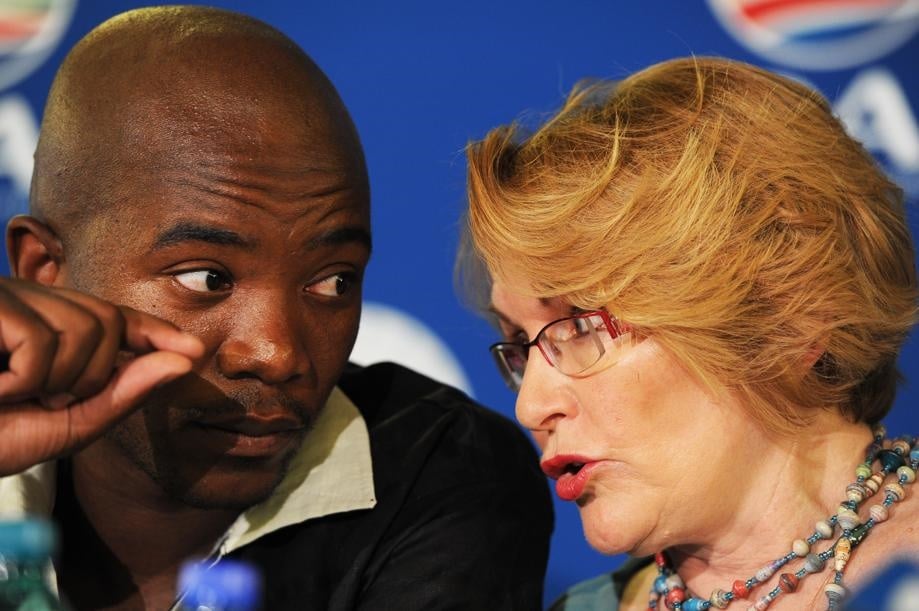
The rise of Helen Zille as the new chair of the federal council of the Democratic Alliance was unforeseen, not least because most South Africans expected her to bow into retirement.
But most South Africans were wrong.
She is back not as a reformer, but as the same controversial figure that she has been at least since her comments on xenophobia in 2008.
Only bolder and more conservative.
The DA has been searching for legitimacy since it was founded in 2000.
Not surprisingly, the latest developments are tethered on the legitimacy question, and the clash of vision between centrists commuting to the left and back, on the other hand, centrists commuting to the right and back.
Within the DA, Mmusi Maimane’s centre left polity appeals to a large part of the black constituency and a small section of white constituency, while Zille appeals to small part of black voters and a large section of white constituency.
The current fallout has left the centre left running for cover. Let me explain why this is not just a DA phenomenon.
From Trump’s America to Brexit, the world is moving to the right.
Several countries in Europe have recorded surprising rapid and widespread rise of nationalistic politics.
Analysts suggest that we are likely to see the resilience of conservatism for at least a decade.
Back to the Democratic Alliance. I was surprised that the panel report which blamed the DA’s decline on Maimane’s leadership failed to examine the broader global and national questions which inevitably undermined the performance of the DA in the past general elections.
Two points come to mind.
First, there is no question that Ramaphosa’s ANC is more stable than Zuma’s and therefore more challenging to opposition parties.
Second, Ramaphosa’s ANC seems to have retreated from the overtly left leaning posture of Zuma’s ANC, towards the centre.
The consequence is that most South Africans, black and white, who are not attracted to the extreme versions of racial identity would feel reasonably comfortable to vote for the ANC.
It seems to me that if the panel used loss of votes as a performance indicator, it then needed to examine the geo-political winds which the DA was sailing within.
To pin the problem of lower votes to poor leadership is rather linear and, in my judgement, a reductionist analysis of the causes and effects of voter growth.
There is a more uncomfortable reality.
While Maimane’s vision for racial transformation of the DA is a noble one, strategically it is a steep climb.
This is because the global moment of right leaning politics provide a fertile ground for the rise of localised nationalisms.
To protect nationalistic interests is now in fashion in most parts of the world, not least in South Africa where nationalism takes the form of racial identity.
In 2016 I argued that post-apartheid order only started roughly two decades after 1994, because the project of reconciliation had taken a fragile outlook to conversations about race.
Under the new (post- apartheid) order, South Africans from both sides of the racial aisle are bolder, more aggressive and more confrontational on issues they consider as racial.
And most issues are racial.
Thus AfriForum is no longer moderate; Freedom Front Plus and the Economic Freedom Fighters are the fastest growing parties in South Africa.
The result of such order is that Zille, who started off as an anti-apartheid activist in the late 1970s and ended up as a defender of colonialism and white privilege three decades later, could be so popular within the party so as to get elected to the chair position of the federal council.
The tensions along racial lines within the DA have always been there, and Maimane took leadership perhaps more optimistic on his ability to move towards a more tolerant racial discourse.
Or perhaps he misread the potential of emerging politics of nationalistic interests, no less than the Democrats in the United States misread the momentum of the “right” even on the eve of the 2016 presidential elections.
I suggest that the centre right seems to be pulling further away from the centre, and therefore a split is no longer a matter of if, it is a question of when. The race to save the DA, as Zille puts it, is an ideological quest.
It is an agenda aimed at redeeming conservative interests from drift to the left.
To modify Danish author Hans Christian Andersen’s tale, Maimane’s racial transformation efforts would have left the conservative empire without clothes. They wouldn’t sit by and wait for such tragedy.
Dr Jason Musyoka is a senior researcher at the Centre for the Advancement of Scholarship, University of Pretoria




 Publications
Publications
 Partners
Partners








